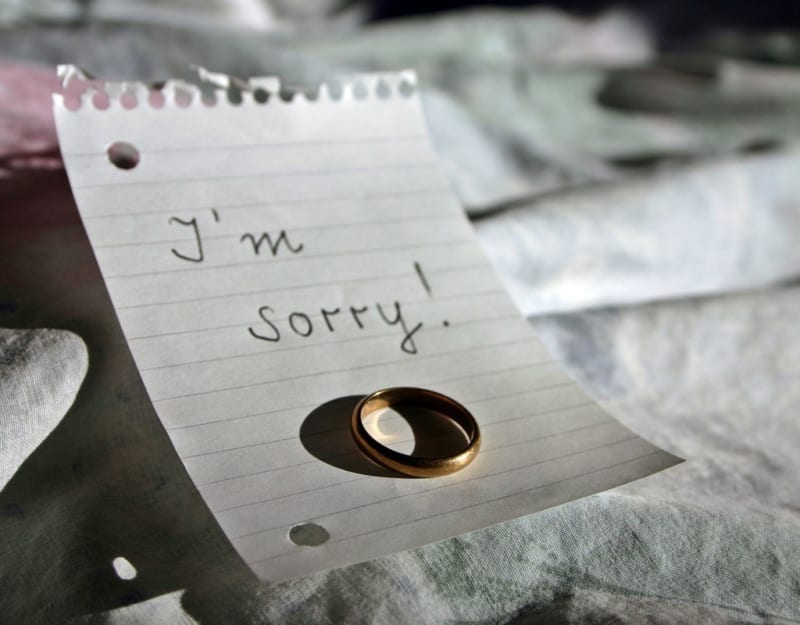Deciding to separate from your partner is never easy. But when you are a family, figuring out how to break it to the kids and explain separation and divorce can be a struggle for many couples.
Mike and Julie had been married for nearly ten years when they decided that their relationship was beyond saving. After trying marriage counselling, they both agreed that the challenges they faced were simply too great. They made a mutual decision to end their marriage. While the marriage dissolution was primarily related to the behaviour and attitude of only one of them, they went to their children with a simple story to explain what would be happening to their family.
Mike and Julie told their three children, aged 3, 5, and 8, that they would all still be a family, but that families don’t always live together. They said, ‘We loved each other very much in the beginning and wanted to make our family always be together. But we were wrong. We’ve made some mistakes and haven’t treated each other the right way. We’re going to live in different houses for a little while, and maybe if things don’t get better we’ll always live in different houses. If we do this, we think we will like each other better. And we think we’ll be better parents because then you won’t always have to hear us arguing with each other.’
Do we have to tell our children about separation?
Children need to be told that their parents are separating. There are some ways of explaining this to your children that are better than others. Many parents choose not to tell their children at all. In one study, it was found that 80 percent of preschool kids were not told that their parents were separating. They just woke up one morning and their parents had split. Children who are exposed to such a devastating experience are sure to be deeply traumatised. A parent’s marriage dissolution is traumatic enough in supportive circumstances.
Separation stories are like onions
You may have watched the movie, Shrek. In one scene, Shrek is explaining to his travelling companion, Donkey, that ogres (like Shrek) are like an onion, with multiple layers. Separation and divorce stories are also like onions. There are many layers to them. When we provide information to our children, we need to invoke the onion principle. We avoid revealing the inner layers. We just give them the outer layer, keep it simple, and keep it centred on the basic, objective facts.
We should keep our discussions future focussed. In Mike and Julie’s case, they did not apportion blame. They did not focus on the past, or on the transgressions of either parent. They briefly acknowledged mutual mistakes, and then described their futures in ‘different houses’, and described how they felt it might make things better.
Research shows that the more exposure the children get to the separation issues, the worse it is for children. When we involve them in our torrid, angst-riven, personal affairs we undermine our relationships with them and with their other parent. We also harm their ability to function well. It seems that the less we expose our children to all of the details of our relationship breakdown, the better they do.
Don’t point the finger of blame
Regardless of who is to ‘blame’ for the relationship, we should avoid, at all costs, pointing fingers of blame at anyone, particularly in front of the children. Children are likely to believe they are responsible for your break-up, particularly before the age of eight. It is important that children receive consistent and sincere reassurance that it has nothing to do with them, and that the dissolution of the relationship is about mummy and daddy.
Don’t ask your kids to choose
Parents often involve their children in the decisions related to a separation. This is not necessarily a good thing. First, asking children about these issues can put them into the awful position of having to choose sides. Turning your parenting into a popularity contest is harmful to your child. Second, we need to make the decisions according to the best interests of our children, and often they don’t know enough to be able to make decisions in their own best interests. Instead, children should be involved (at a basic level) with an understanding of what you have decided and why. If they are old enough, you may find it helpful to understand how they feel about that, but asking them to make decisions is not usually in their interests, nor is it healthy for them.
The do’s and don’ts of talking to your kids about your separation
When you do tell your children that your relationship is irreconcilable, remember:
Don’t lie
Lying will undermine your children’s trust in you. At such a difficult time, your children need to rely on your honesty more than ever, but don’t overshare. It’s a fine line.
Don’t tell them secrets
When you share things with your children in confidence (asking that their other parent be kept in the dark), your child will start feeling conflicted about loyalty.
Don’t be negative
Negativity will undermine your relationships with your children and your ex-partner. Negativity also increases the need for children to be secretive. Negativity will hurt how your child feels about herself and your family more generally, with broader negative effects in her life.
Don’t blame
Blaming your ex is unhelpful for your child’s relationships with you and with your ex. Your child may feel that when you are talking to others you might also blame her for the breakup. Similarly, saying things like, ‘We’d be a family still if he’d come back’ puts children into an awkward position, making her question her loyalty to their other parent, and fosters resentment.
Don’t beg
Don’t use the kids as a tool to accomplish your ends. For example, “Please tell Daddy to come home.”
Do
- Make it easy for your kids to love both parents
- Tell the truth
- Keep it simple
- Be civil
- Assure your children that it has nothing to do with them
- Remain future focused
This article was written by Dr Justin Coulson for Kidspot.com.au and has been adapted for Kidspot.co.nz
Share your experience of explaining to kids about separation and divorce.
See more:







It’s always the hardest when there are young humans involved. Communication is always important – even with parents who are still together. It won’t be easy and with the same as everything else – it’s hard work, it hard work to stay together, it’s still hard work when you’re not.
This is a conversation that I hope I will never have to have but there are good tips here if it ever does happen. I am a firm believer that kids are better off with happy, separated parent than miserable parents that stay together ‘for the kids’.
This would be one of the hardest conversations to have I think. But so important. I can’t believe there are people who don’t even tell their kids. Ekkk. I mean if they are really little I suppose it would seem weird to have a conversation about it, but even at 18 months kids can kinda understand things are changing and will need some guidance.
Good advice, I hope my husband and I never have to go through this but there are plenty of people that have, and will. I think as long as it is age appropriate and honest (within reason) then real conversations need to be had.
I think if you keep it honest, age appropriate and no need to go into the details too much then children are quite capable of understanding more than we give them credit for
There are some good points here I have not been in this situation but have always thought about it and what to do if it did happen. So many people try to stay together but it just does not work out for the better. The dos and dont’s are very interesting points to remember. I have a few friends who have been through this and it is hard with children involved.
Good advice – I’m sure many of us in relationships have thought about if we separate and how we would go about doing it when children are involved, I know I have. You can sort of understand why some people stay together for the kids, but really it’s not always a good thing as they are the ones that can end up hurting the most 🙁 I think, age dependant that communication is the key and trying to stay positive and not get nasty.